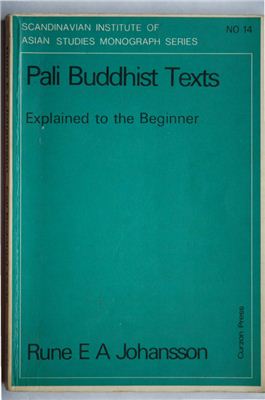Oxford: Curzon Press, 1977. - 160 p.
Pali is one of the Middle Indian idioms and the classical language of Theravada Buddhism. It is therefore important both to linguists and students of Buddhism. This introductory book centres on a collection of original texts, each selected as an especially important and beautiful formulation of a Buddhist idea. By means of a vocabulary, translation and commentary, each text is explained so concretely that it can be read with little preparation. Detailed explanations are provided for the many technical terms, which have frustrated so many weste explorers of Buddhism. For reference, a grammar is provided. Sanskrit parallels to many of the words are given, as well as a special chapter comparing the two languages.
Pali is one of the Middle Indian idioms and the classical language of Theravada Buddhism. It is therefore important both to linguists and students of Buddhism. This introductory book centres on a collection of original texts, each selected as an especially important and beautiful formulation of a Buddhist idea. By means of a vocabulary, translation and commentary, each text is explained so concretely that it can be read with little preparation. Detailed explanations are provided for the many technical terms, which have frustrated so many weste explorers of Buddhism. For reference, a grammar is provided. Sanskrit parallels to many of the words are given, as well as a special chapter comparing the two languages.

